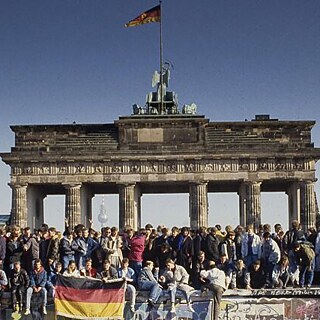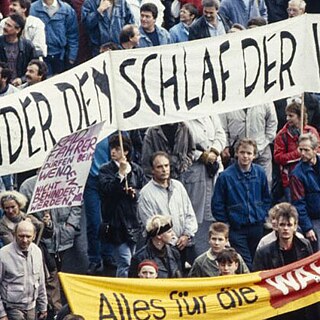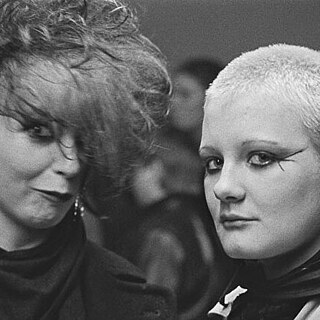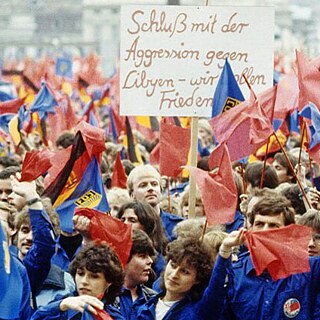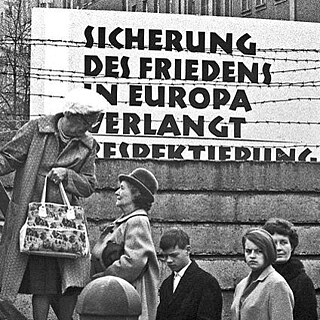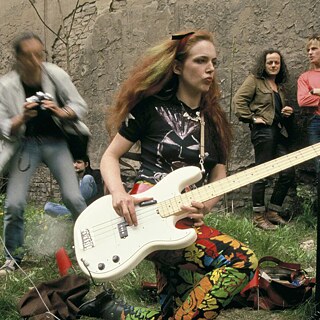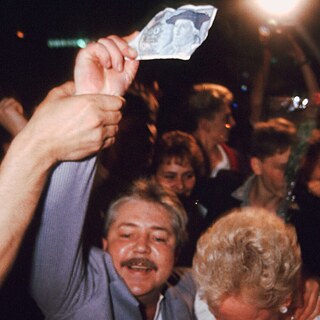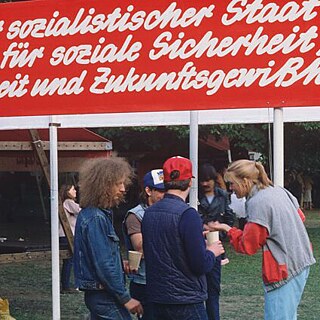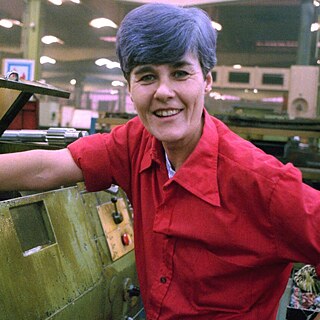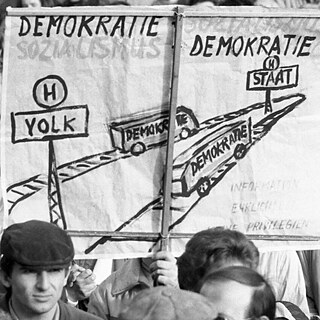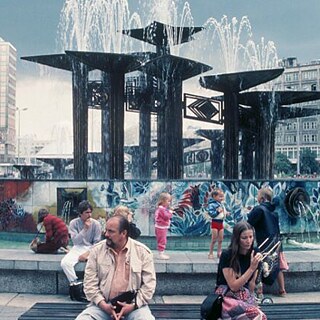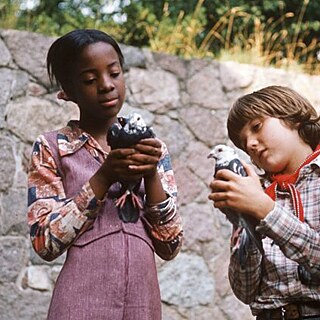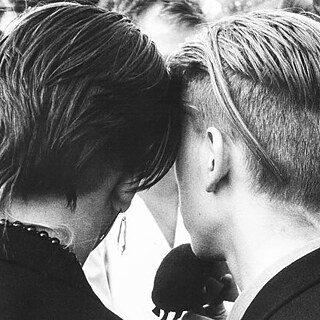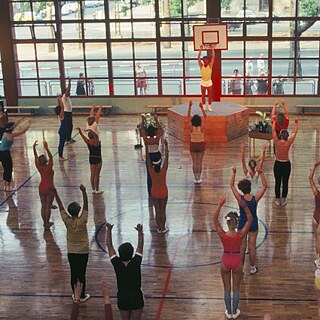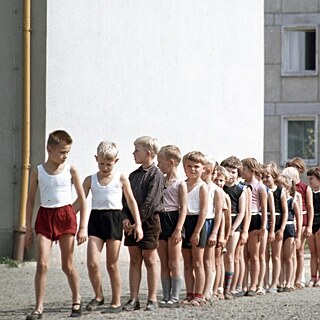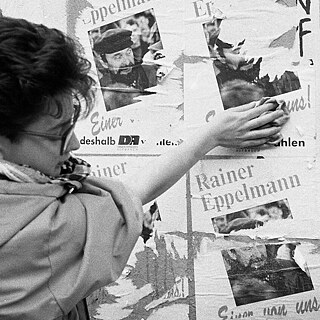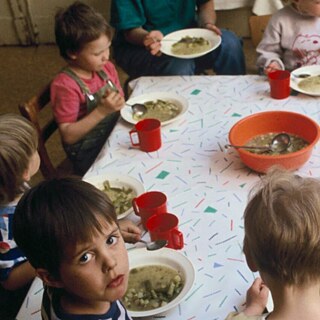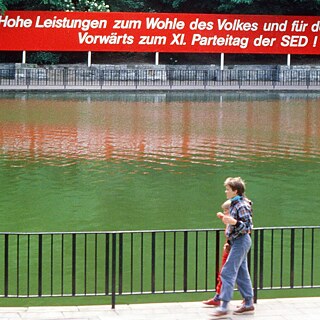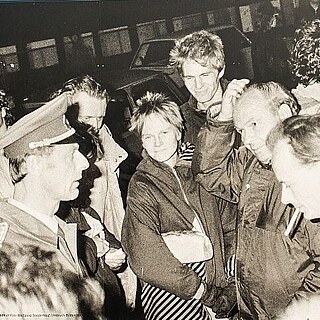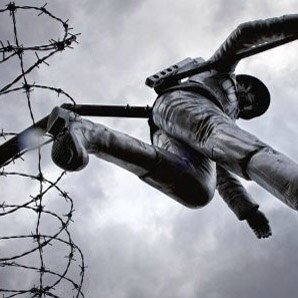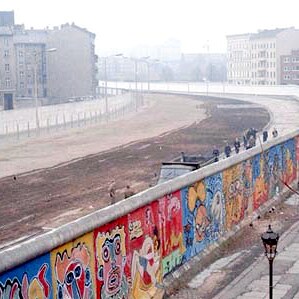
Show description in:
Chapter 15Commonalities and differences FRG vs GDR: Religion
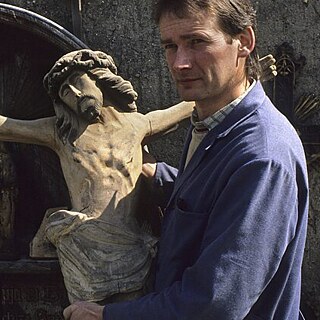
The GDR was not as aggressive in suppressing religious movements, as were other Eastern bloc countries.
Characteristics
Language level
Target group
Skill

Part of the series Divided Germany, the wall and reunification
26 materials
Description
The GDR was not as aggressive in suppressing religious movements, as were other Eastern bloc countries. Young people who were not allowed to pursue a successful career within the system, would often train as theologians. Towards the end of the Socialist regime, churches became the main places where protest could be aired and diverging opinions expressed. The Blues masses were unique institutions in East Germany, where people would gather en masse to listen to Blues music, discuss politics and express religious devotion.
Videos
1. SILENCING THE CHURCH?
East Germany (GDR) was ultimately unsuccessful in “shutting down” or completely controlling the Church, as an ideological opponent. Were there any instances when the GDR came close to silencing the Church? If so, how did that affect religious movements throughout East Germany?
2. PROTEST IN CHURCHES
Churches were breeding grounds for oppositon movements in East Germany. Why did they play such a central role for young and old dissidents? What were Blues masses?
3. OPPOSITION TO THE GDR REGIME
As a dissident, Mario Röllig was part of an evangelical group against the GDR regime. What was he opposing?
PARTNERS
Bundesstiftung Aufarbeitung der SED-Diktatur (Federal Foundation for the Reappraisal of the SED Dictatorship), German Consulate General New York, German American Partnership Program (GAPP), American Association of Teachers of German (AATG), Transatlantic Outreach Program (TOP) and Spark for German.
Videos
1. SILENCING THE CHURCH?
East Germany (GDR) was ultimately unsuccessful in “shutting down” or completely controlling the Church, as an ideological opponent. Were there any instances when the GDR came close to silencing the Church? If so, how did that affect religious movements throughout East Germany?
2. PROTEST IN CHURCHES
Churches were breeding grounds for oppositon movements in East Germany. Why did they play such a central role for young and old dissidents? What were Blues masses?
3. OPPOSITION TO THE GDR REGIME
As a dissident, Mario Röllig was part of an evangelical group against the GDR regime. What was he opposing?
PARTNERS
Bundesstiftung Aufarbeitung der SED-Diktatur (Federal Foundation for the Reappraisal of the SED Dictatorship), German Consulate General New York, German American Partnership Program (GAPP), American Association of Teachers of German (AATG), Transatlantic Outreach Program (TOP) and Spark for German.
Teil von:
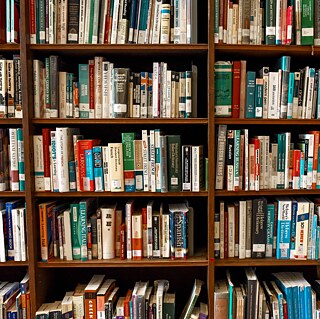
© Pixabay
A2 B1
